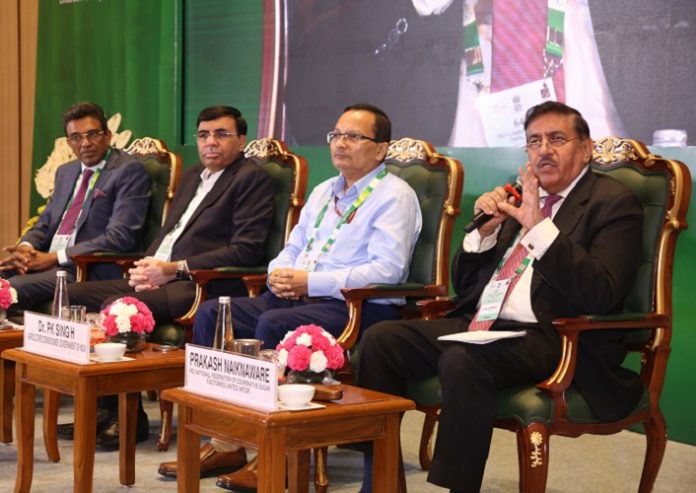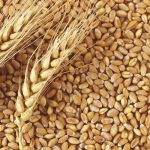Mechanization in sugarcane farming is poised to play a crucial role as the sugar industry moves towards greater efficiency and productivity. With steps being taken to introduce more cane harvesters, the landscape of sugarcane cultivation is set to undergo significant transformation. Mechanized harvesting not only promises higher yield but also reduces labor-intensive tasks, thereby increasing overall efficiency and profitability for farmers.
Prakash Naiknaware, MD, National Federation of Cooperative Sugar Factories Limited (NFCSF), while speaking about his experience in the cooperative sector in the sugar industry, he emphasized on the urgency of adopting mechanical farming.
As the panellist of the insightful session on ‘Ease of doing cane farming: Mechanization & Modernisation’ at the 64th ISO Council Meeting, Prakash Naiknavre said, “In Maharashtra, Karnataka, Gujarat majority of sugar mills are cooperative and they contribute quite a bit in country’s overall sugar and ethanol production. In these three states, cane cutting operations are largely handled manually. Those cane cutters in number of one million migrate from various places to cut the cane. Young generations of these cane cutters with better education and opportunities are not willing to do this job as it is very strenuous. Mechanical harvesting is need of the hour across India. Just imagine if the cane is allowed to stand in field in absence of cane cutters, what will happen? The cane will be exposed to the threat of dryness and quality and quantity losses. In view of this potential threat, we NFCSF have taken unique lead. With National Cooperative Development Corporation (NCDC), NFCSF are coming together to provide 10,000 cane harvesters to the cooperative sugar mills and the timeline is this year and next year. So by the end of 2025-26, we aim to provide cane harvesters of various sizes, various capacities, the choice will be left to the sugar millers, they will be taking these cane harvesters with the finance coming from NCDC. This is going to be very massive scheme and will see the result of this in next two to three years. It will also reduce the cut to crush time. All in all, it is going to change the entire scenario of cooperative sugar sector.”
Roshan Lal Tamak, CEO, DCM Shriram Limited sheds light on ‘Ease of doing cane farming: Mechanisation & Modernisation’, highlighting the pivotal role of technology and innovation in enhancing agricultural productivity at the 64th ISO Council Meeting. He elaborated the government’s supporting policy framework strengthening mechanization and modernisation in cane farming.
Speaking on status of mechanical harvesting, he said, “In Australia 100 per cent mechanization is there, in Brazil 80 per cent mechanization is there, in Thailand 35 percent mechanization is there, but in India it is only around 4 per cent. But interesting part is in India, from 2019 to 2024, there is more than 311 per cent growth in mechanical harvesting. It is wonderful achievement.”
M Prabhakar Rao, President of ISMA, facilitated the session, exploring opportunities for growth and development in the sugar industry. He outlined how drip irrigation in sugarcane can cut water consumption by 30-40% and boost yields.
Joining the panel, Dr. PK Singh, Agriculture Commissioner, Government of India, explored strategies to enhance agricultural efficiency and sustainability at the 64th ISO Council Meeting. Dr. He discussed ways to adopt different methodologies at policy level that can benefit all farmers.
















